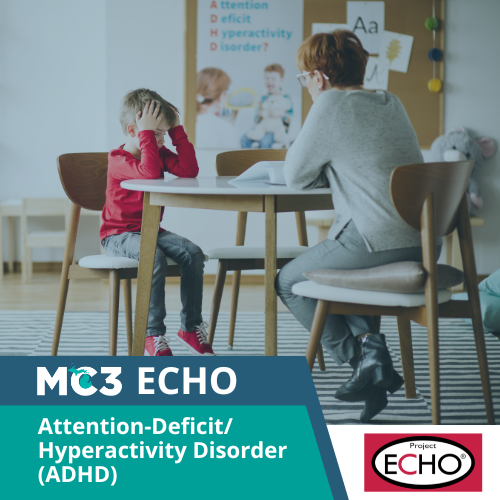
Project ECHO (Extension for Community Health Outcomes) leverages video conference technology to connect subject matter experts with health care teams in local communities, fostering an “all teach, all learn” approach. Learn more about the ECHO model and our previous ECHO series: MC3 ECHO: Behavioral Health
12–1 p.m. ET

12–1 p.m. ET

12–1 p.m. ET
Information to come.

12–1 p.m. ET

12–1 p.m. ET
Information to come.

12–1 p.m. ET

None of the planners for this educational activity have relevant financial relationship(s) to disclose with ineligible companies whose primary business is producing, marketing, selling, re-selling, or distributing healthcare products used by or on patients.
This activity has been planned and implemented in accordance with the accreditation requirements and policies of the Accreditation Council for Continuing Medical Education (ACCME) through the joint providership of the Minnesota Medical Association and Michigan Public Health Institute. The Minnesota Medical Association (MMA) is accredited by the Accreditation Council for Continuing Medical Education to provide continuing medical education for physicians.

The Minnesota Medical Association designates this internet live activity for a maximum of 6 AMA PRA Category 1 Credit(s)™. Physicians should claim only the credit commensurate with the extent of their participation in the activity.
Social workers can receive CEU credits for attending this training. Details about claiming CEU credits can be found here: MC3 ECHO: Behavioral Health – ADHD Monthly CEU Credit Information

Lia Gaggino, M.D.
Pediatrician
Medical Behavioral Health Solutions
ECHO Facilitator

Sheila Marcus, M.D.
Clinical Professor
U-M Department of Psychiatry
ECHO Lead and Subject Matter Expert

Erin Hughes-Krieger, LMSW
MC3 Program Manager
U-M Department of Psychiatry
ECHO Project Coordinator

Crystal Cederna, Psy.D.
Associate Professor
Michigan State University
ECHO Subject Matter Expert
All prescribers who’ve signed up for MC3’s prescriber consultations are regularly sent emails with updates about our educational opportunities.
If you are not eligible for MC3’s prescriber consultations but would like the receive information about learning opportunities, please complete this form: MC3 Educational Opportunities email list sign-up